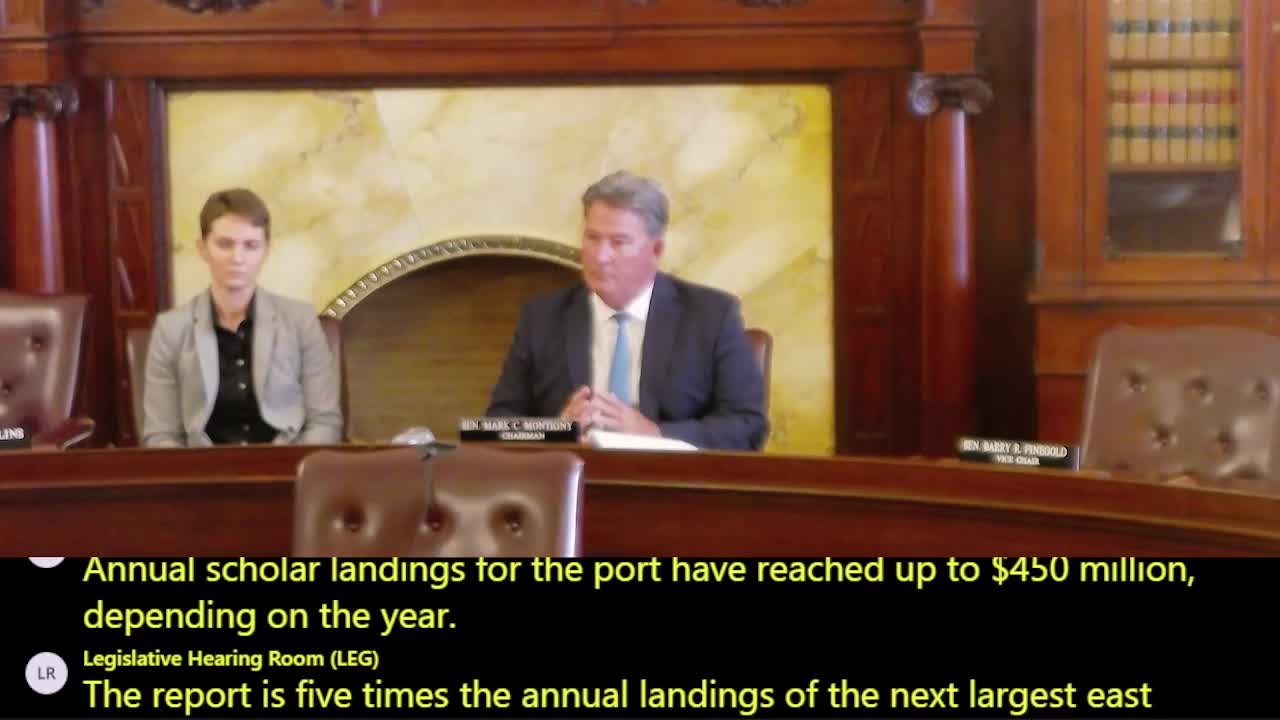New Bedford Port Highlights Economic Impact and Challenges for Seafood Industry
July 30, 2025 | Senate, Legislative, Massachusetts
This article was created by AI summarizing key points discussed. AI makes mistakes, so for full details and context, please refer to the video of the full meeting. Please report any errors so we can fix them. Report an error »

The Massachusetts Senate Committee on Intergovernmental Affairs convened on July 30, 2025, to discuss the critical state of the seafood processing industry, particularly focusing on the Port of New Bedford, which is the largest seafood processing hub in the country. The meeting highlighted the port's significant economic impact, supporting over 40,000 jobs statewide and contributing up to 2% of Massachusetts' GDP.
Key discussions centered on the balance between sustainability and economic viability within the scallop fishery. While regulatory frameworks such as catch limits and vessel monitoring are essential for maintaining fish populations, stakeholders emphasized the need to consider the economic ramifications of these regulations. The port currently processes seafood from both local fishermen and international sources, underscoring its pivotal role in the global seafood market.
Challenges facing the industry include infrastructure limitations, rising operational costs, and the impact of climate change. The committee noted the importance of investing in infrastructure improvements and leveraging technology for real-time data on ocean conditions to enhance fishing practices. There was also a call for better branding and marketing of Massachusetts seafood to boost its market presence.
Concerns were raised about proposed changes to fishing permit allocations that could threaten local ownership and the cultural integrity of the fishing community. Stakeholders stressed the importance of maintaining controls to prevent outside investors from disrupting the local fishing fleet, which has been historically dominated by local owners who are deeply connected to the region.
The meeting concluded with a commitment to address these challenges while fostering opportunities for growth and sustainability in the seafood industry, ensuring that the Port of New Bedford continues to thrive as a vital economic engine for Massachusetts.
Key discussions centered on the balance between sustainability and economic viability within the scallop fishery. While regulatory frameworks such as catch limits and vessel monitoring are essential for maintaining fish populations, stakeholders emphasized the need to consider the economic ramifications of these regulations. The port currently processes seafood from both local fishermen and international sources, underscoring its pivotal role in the global seafood market.
Challenges facing the industry include infrastructure limitations, rising operational costs, and the impact of climate change. The committee noted the importance of investing in infrastructure improvements and leveraging technology for real-time data on ocean conditions to enhance fishing practices. There was also a call for better branding and marketing of Massachusetts seafood to boost its market presence.
Concerns were raised about proposed changes to fishing permit allocations that could threaten local ownership and the cultural integrity of the fishing community. Stakeholders stressed the importance of maintaining controls to prevent outside investors from disrupting the local fishing fleet, which has been historically dominated by local owners who are deeply connected to the region.
The meeting concluded with a commitment to address these challenges while fostering opportunities for growth and sustainability in the seafood industry, ensuring that the Port of New Bedford continues to thrive as a vital economic engine for Massachusetts.
View full meeting
This article is based on a recent meeting—watch the full video and explore the complete transcript for deeper insights into the discussion.
View full meeting
